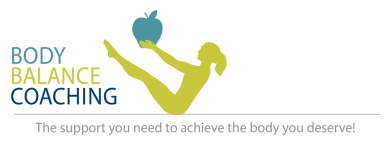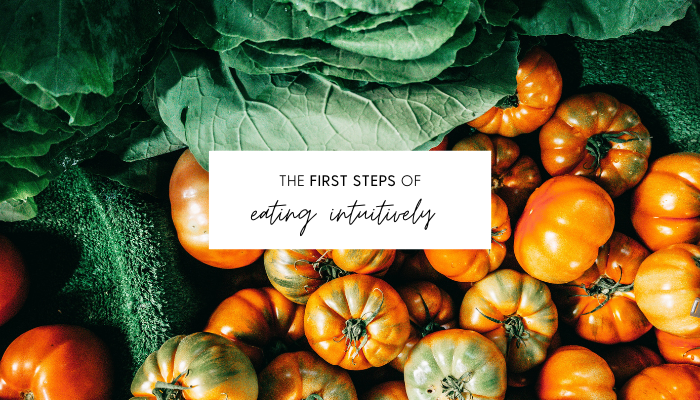You're not alone; your relationship with food can be tricky and challenging to navigate. One tremendous help is learning to tap into your intuition and use it to improve your relationship with food and balance your eating patterns in a way that feels tailored to you.
Intuitive eating is a way of making peace with food and your body. It's about listening to your hunger cues and eating in response to them, rather than in response to emotion. When you're in tune with your body's hunger signals, you're more likely to make the choices that are right for you. So, how do you become aware of your hunger cues?
Learning Your Hunger Cues
Most of us have been taught to eat when we're hungry and stop when we're full. But what exactly are hunger cues? Hunger cues are the physical and psychological signals that tell us it's time to eat. Cues can include things like headache, irritability, or feeling lightheaded. Paying attention to these cues can help you better understand your body's needs and how to fulfill them. Unfortunately, many of us have become disconnected from our hunger cues, and we often eat based on the clock instead of listening to our bodies. In addition, our body may undergo stress or depletion which may result in craving specific foods.
What does your body feel like when you're hungry? What does it feel like when your body has been depleted and needs to refuel? How do you know the difference between when you're really hungry, or when you are craving a food to satisfy a depletion? Paying attention to your cues will help you eat only when you're hungry, eat the right foods to set you on the right path again, or knowing when to slow down.
Long Lasting Fuel
Feeling irritable, or lightheaded could be a sign of hunger or your blood sugar has dropped too low. Knowing your cues can help you take note of what foods may work or not work for you and what food combinations give you longer lasting fuel. For instance, combining a simple carbohydrate like pasta with vegetables may only last you an hour. If you swap the carbohydrate for a more complex carbohydrate like sweet potato and add a bit of protein and good fat like olive oil or nuts, you may have longer stamina and you won’t have the blood sugar spike and drop, resulting in irritability.
Dehydration can imitate hunger. It can cause the body to crave certain foods or make you feel hungry in general when you are thirsty. Signs of dehydration are dry lips, low blood pressure, feeling lightheaded, tired, and heavy or slow reacting legs and arms. If you are not sure if you are thirsty or hungry, try drinking a glass of water when you feel hungry and wait 20 minutes to see if the hunger feeling goes away.
Knowing When to Stop
Knowing when to stop eating can be difficult, especially if you enjoy the food. However, overeating can lead to uncomfortable side effects such as indigestion and bloating and can also be harmful to your health in the long run. That's why it's essential to know how to listen to your body and stop eating when you're full.
There are a few cues that you can look for that will indicate that you're getting close to being full. For example, you may start to feel a subtle sense of discomfort in your stomach. You may also notice that you can no longer eat as quickly as you were when you first started. If you're paying attention, you'll likely notice these cues before you reach the point of feeling stuffed.
Stressors
There are many types of stressors but the biggest one for most people these days is overactivity. Many of us lead busy lives and we are constantly on the go, which to our body is stress. Cortisol is a stress hormone that allows you to interact and cope with your external world. This type of stress sends a message to the body saying, change the energy used to power the internal body (such as metabolism, reproduction, and cell repair) to focus on handling your external environment. The central nervous system is in a sympathetic response mode, a fight, flight, or freeze mode. Over prolonged periods of time it breaks down the body, creating a catabolic state and that is when we start to experience symptoms.
Knowing physical cues such as being sensitive to bright light, jumping at a sudden noise, or craving salty or sugary foods can be an indication your body is overly stressed, your adrenals are being taxed and you’re becoming depleted. This could lead to reaching for a quick fix such as coffee, fatty or sugary foods. This may feel good at first but later send you down a worse path of imbalance.
The body also creates a hormone that repairs and rebuilds the system, called DHEA. The body can’t do both jobs at one time. It can’t build the reserves while using it. To fill the body’s reserves you need to digest and absorb your food efficiently to obtain the nutrients. In order for the body to rebuild and repair internal cells and tissues, it needs to create DHEA. The body can only access DHEA for repairing any damage, if the body comes down off the heighten stress mode. In order to rebound from stress we need to have enough reserves. It is a bit of a cycle. Being in tune with what your body is experiencing can help you know when you need to slow down and rest.
Here are some tips to try to enable a calm state, allowing your body to replenish. It can also help you to tune into your body’s hunger signals and what it really needs.
- Take a breath before eating – just a few deep breaths in through the nose and out through the mouth allows the diaphragm to expand and triggering the nervous system to relax
- Don’t rush to eat – eating in a relaxed state allows food to digest and replenish your reservoir
- Sit down while eating – this helps to tell the nervous system that you are in a relaxed state
- Give appreciation to your food – this creates positive mindset and energy
- Chew – breaking down the surface area of the food allows enzymes to break down the food better, so you can get more nutrients from your food
- Knowing when to Stop – notice signs of when you are getting full
- Notice what foods give you long lasting energy – try different food combinations and amounts
- Front-load water – drink lots of water first thing in the morning to start your body off right.
Intuitive eating is a process that takes time and practice. When you start eating intuitively, you'll likely find that you have more energy, better digestion, and a healthier relationship with food.
What are your thoughts on intuitive eating? Have you tried it before? Hit reply and let me know.


 RSS Feed
RSS Feed
